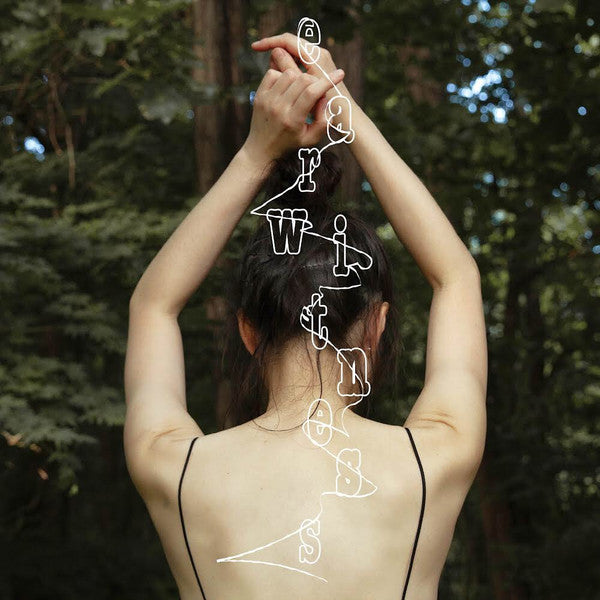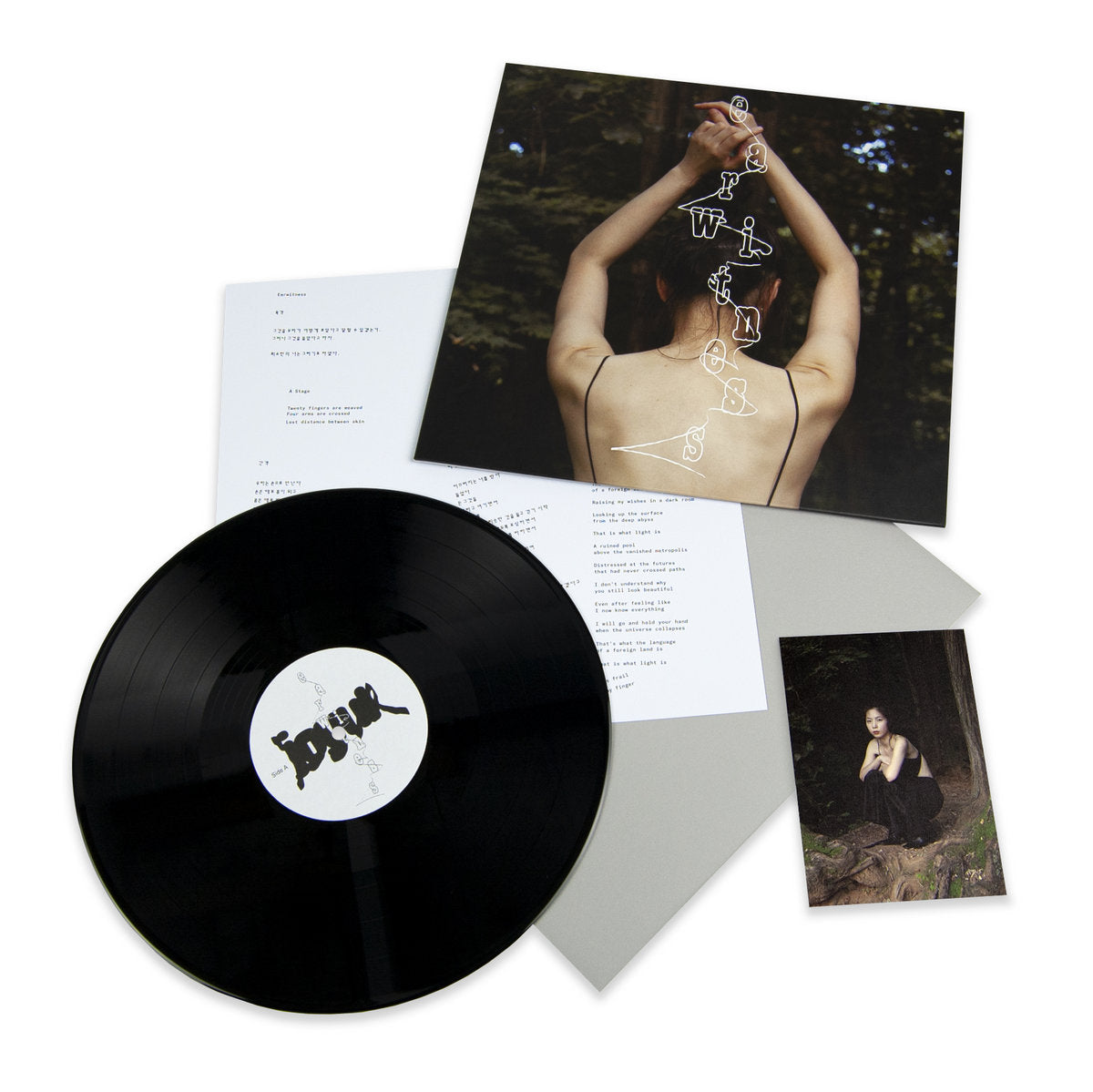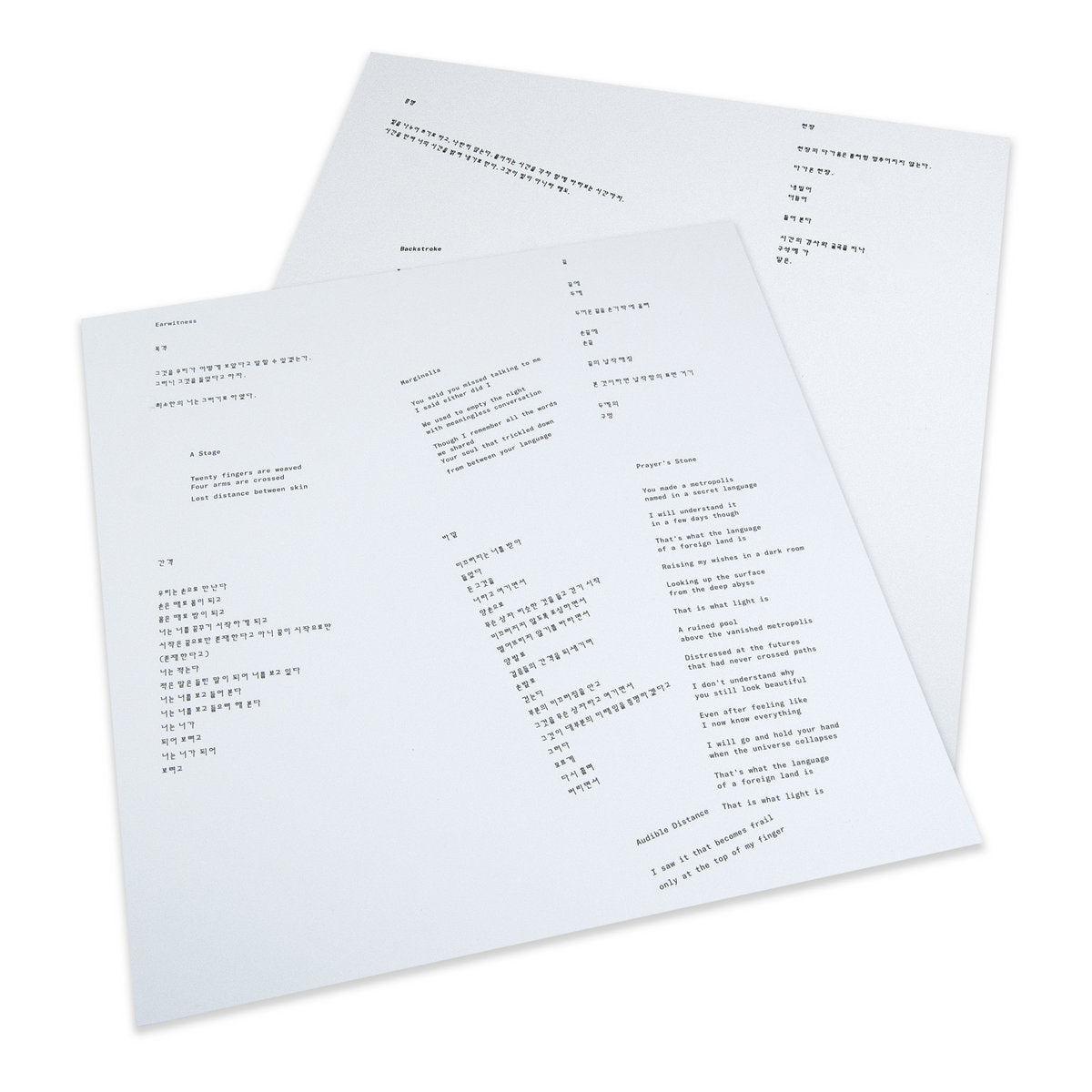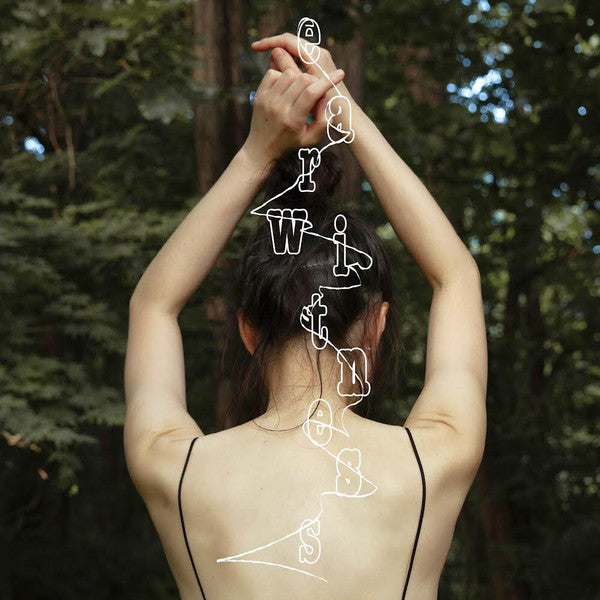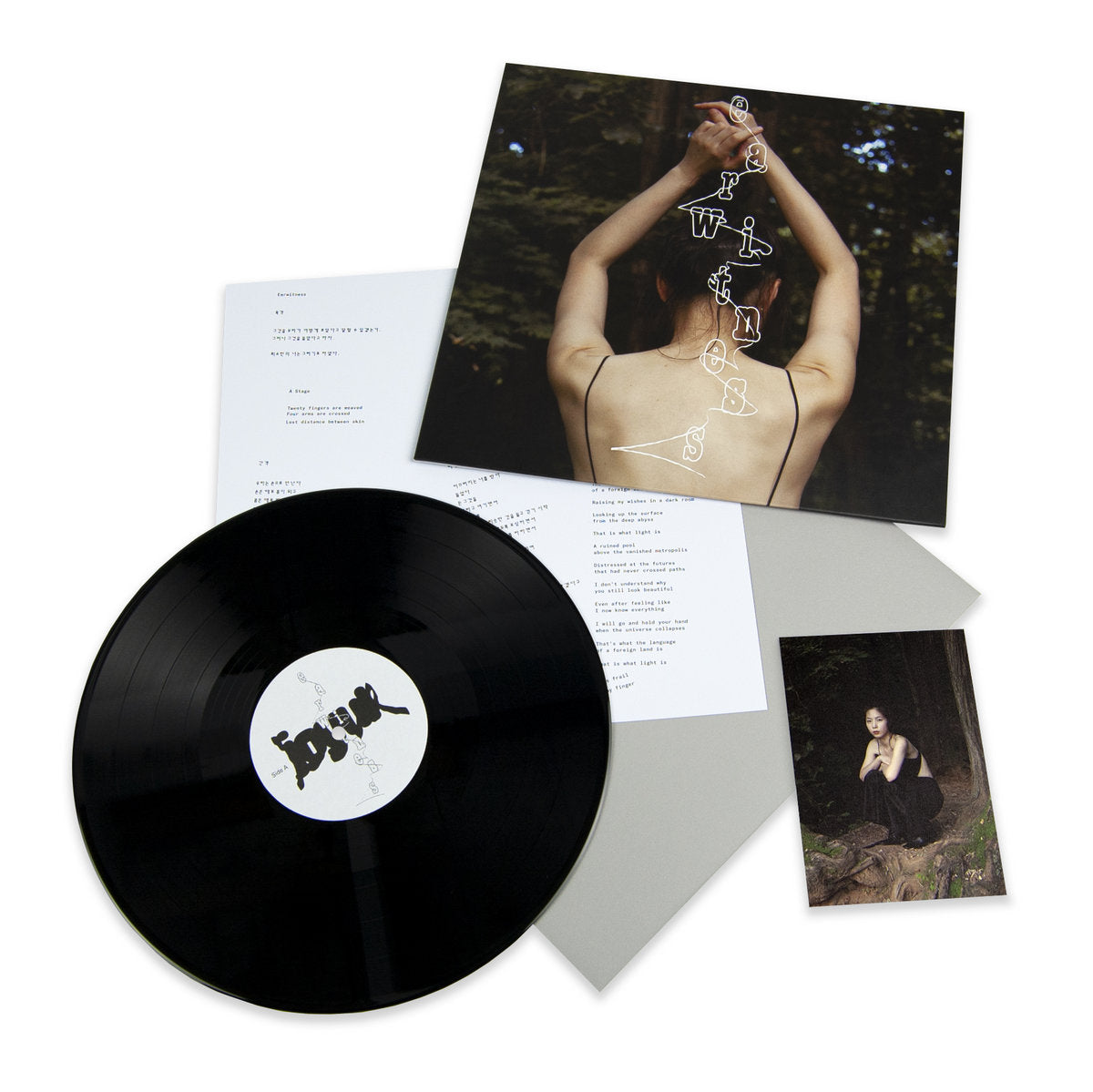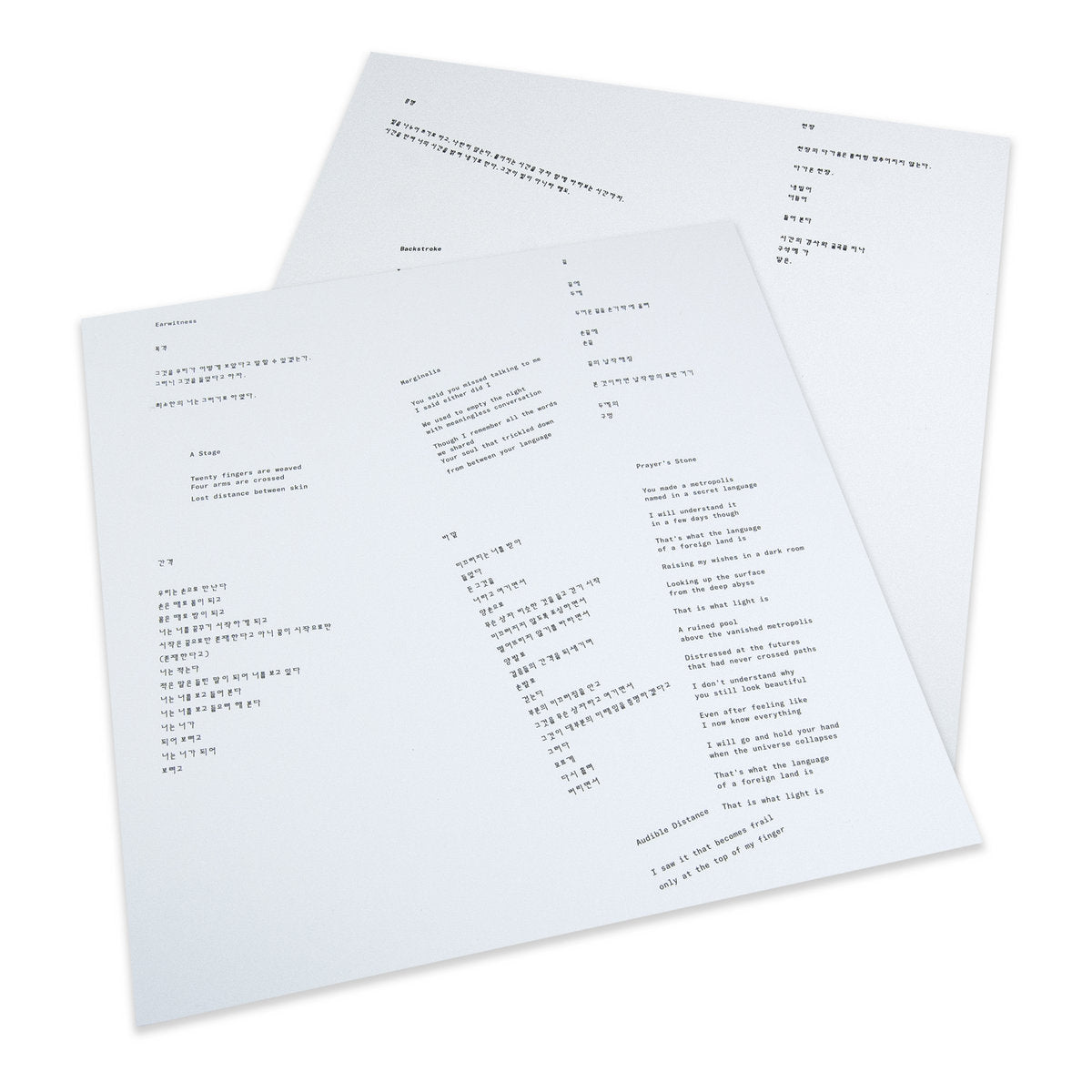Joyul - Earwitness LP
Joyul - Earwitness LP
Couldn't load pickup availability
* Very minor imperfections on sleeve, from distributor
If music is indeed a world of its own, how do we imagine its weather, temperature, scale and, soil? How do we imagine the ecosystem of its inhabitants and the way that language and order intersect within it? When an incident is obscure to us, can we learn more about it by searching for clues in every corner of its background and the world surrounding it?
In an aging space covered in dust, shards of glass lay scattered throughout. Pearly dust sat on dimly lit, sparse furniture, suggesting the place was left uninhabited for a long while. Occasional gusts of wind could be heard, but no outside drafts reach the skin. You could hear a swarming, growling sound as you stood in it. The surrounding nature was indistinct. Whether it was a place with lots of water flowing nearby, or a place where trees sway in the wind, or a place where the ruins of buildings lay abandoned was unknown. Though unsure whether it is day or night, not knowing if it is a room or a garage, a time-lapse shows us that its purpose and environment have changed significantly along with the passage of time.
As we face all kinds of weather, time filled with both dirty and fine matter flows elongated. It seems like there was a thundering noise at some point, but the sound itself wasn’t present. Like a scream contained in a speech bubble, the drone sound sank into the background, only evidencing the disappeared noise. Any kind of story or narrative for a sound is already obsolete when only traces of the rhythm loosely linger. Every kind of voice and living sound become inaudible, as everything melds into a single scenery. Once there was a song, but now it’s long gone—as though the glistening sounds allude to the time when this story takes place.
by Yeasul Shin from 〈short memos left at 文樂HOM, 8PM 24th June〉 heterophony.kr/earwitness
Translated by bela / Edited by Stefan Gosiewski
*********
In Murray Schaffer’s Soundscapes, the composer and writer describes an “earwitness” as “one who testifies or can testify to what he or she has heard.” Schaffer cites authors like Leo Tolstoy and Thomas Mann who, in their firsthand descriptions of specific locales, provided trustworthy relics of sonic histories. In comparison, he gives a damning description for the people of today: “We have ignored our ears.”
Earwitness is a fitting album title for Joyul, an artist with a sensitive ear to her surroundings. While she began working under this moniker six years ago, the Seoul-based musician’s debut LP arrives with well-intentioned timing, serving as a document of the ideas and people and places that have defined her life. It’s only natural that Earwitness features a wide array of musical styles—many of which have been honed in her live performances—as life itself is vast and multi-faceted. Still, there’s connective tissue across these eight tracks in the form of patient pacing and arresting vulnerability.
“A Stage” opens the record with lapping waters, but instead of mere field recordings, Joyul adorns these waves with bells and whispers and found sounds, creating a moody atmosphere that poetically captures the gulf between two people: “Twenty fingers are weaved/Four arms are crossed/Lost distance between skin.” It’s followed by the direct lyricism of “Marginalia”: “We used to empty the night with meaningless conversation/Though I remember all the words we shared.” Here, she brings out her guitar, gently plucking notes as they reverberate into the void. Comparisons to Grouper are apt, but Joyul doesn’t let her voice or playing have the final say: they dissolve into the sound of birds, telegraphing her own smallness, revealing the interconnectedness of all things.
There’s immense trust that Joyul places in sound as a storyteller, and each track’s distinct sonic qualities flesh out a colorful tapestry of moods. There’s contemplation and drama found in “Chant” through its percussive clacks and revving synths, while “Mirror Ash” has siren-like tones and a mangled beat that feel unsettled and queasy. “Prayer’s Stone” is a stirring, slow-shifting ballad, while “Backstroke” lets dreamy guitar strums express as much emotion as her own voice. Every song is a dance between multiple elements, and the lucidity of her songwriting showcases an artist with full confidence in her craft and the sounds she wields.
Joyul recognizes that Earwitness is an extension of her own sensing of the world—something both highly personal and impossible to fully convey. She knows the futility of sharing such experiences without error, but is interested in testifying nonetheless, presenting music amidst the haziness, the illusions, the utter unknowability of sounds. She listens, and is an earwitness herself, most assuredly because she embraces the truth that, as listeners, we’ll never fully know the soundscapes we construct and encounter.
-Joshua Minsoo Kim
